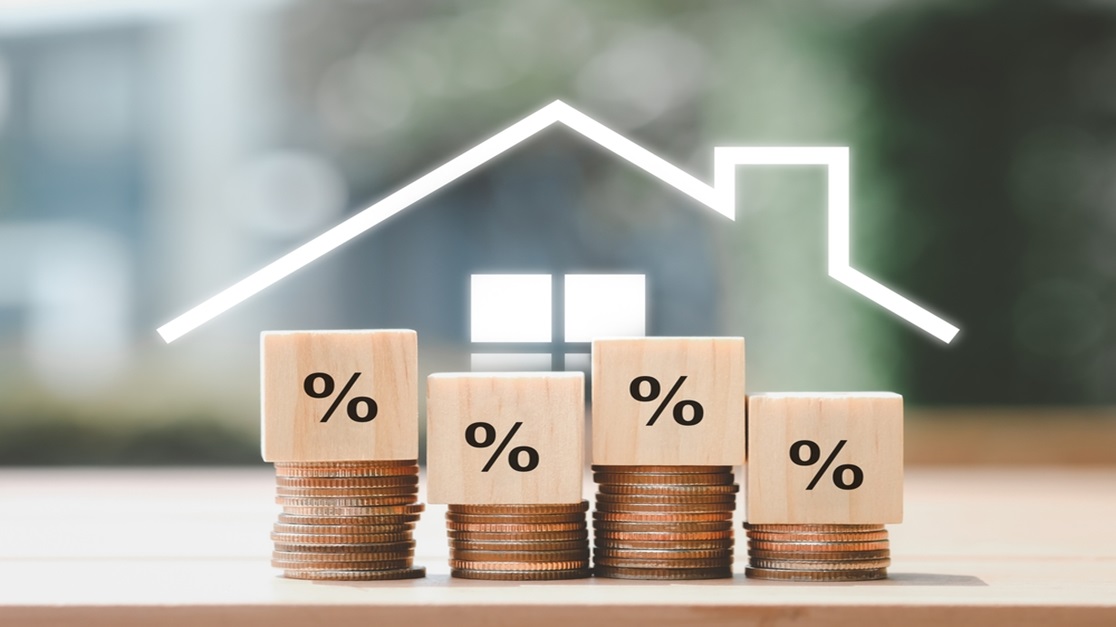Taking a Home Loan in Your 40s: Key Considerations
April 15, 2025

Buying a home is a significant milestone, especially in your 40s when you have more financial stability and clarity about your long-term goals. However, taking a home loan requires careful planning and consideration, as it is a long-term commitment with substantial financial implications.
In this blog post, we will discuss the key considerations for individuals taking a home loan in your 40s. By understanding these factors and making informed decisions, you can confidently navigate the home loan process.
Key Points to Consider
1. Evaluate Your Financial Health
Before applying for a home loan, it's crucial to evaluate your current financial situation. This involves assessing your income and expenses to determine how much you can afford to borrow. Consider your stable sources of income, existing debts, monthly expenses, and any other financial commitments.
Calculate your affordability by using online calculators or consulting with financial advisors. These tools can help you determine the loan amount that aligns with your financial capabilities and long-term goals. It's important to aim for a loan amount that you can comfortably repay without straining your finances.
For example, let's say you have a monthly income of ₹1 lakh and existing monthly expenses of ₹70,000. After deducting your expenses from your income, you have a surplus of ₹30,000. Based on this surplus amount, you can determine the maximum EMI you can afford to pay towards your home loan. This will give you an idea of the loan amount you can comfortably borrow.
2. Prepare for the Down Payment
Saving for a substantial down payment is advisable when taking a home loan in 40s. Aim to contribute at least 20% of the property's value as a down payment. A larger down payment helps reduce the loan amount and lowers your Equated Monthly Instalments (EMIs). It also demonstrates your financial stability to banks, increasing your chances of getting a favourable interest rate.
To accumulate the necessary down payment amount, consider leveraging your savings, investments, and retirement funds. However, avoid liquidating retirement accounts unless absolutely necessary, as it may have long-term repercussions on your retirement goals.
For example, suppose you plan to buy a property worth ₹1 crore. In this case, saving at least ₹20 lakhs as a down payment is ideal. By saving this amount upfront, you reduce the loan burden and decrease the overall interest costs.
3. Opt for the Best Loan Structure
When taking a home loan in your 40s, it's important to choose the right loan structure that suits your needs and financial situation. You need to consider factors such as interest rates and loan tenure. Evaluate whether fixed or floating interest rates are more suitable for you. Fixed-rate loans offer stability in monthly repayments as the interest rate remains constant throughout the loan tenure. On the other hand, floating-rate loans provide flexibility and potential cost savings if interest rates decrease over time.
Decide on an appropriate loan tenure that allows you to manage monthly repayments comfortably without compromising other financial goals. Remember that shorter loan tenures result in higher EMIs but lower overall interest costs.
4. Focus on Long-Term Financial Stability
It's important to assess your long-term financial stability. Consider factors such as job security and insurance coverage. Evaluate your job stability and prospects for career advancement or changes in income over the loan tenure. When planning for loan repayments, it's essential to factor in potential changes in employment status or income fluctuations.
Mitigate financial risks by securing adequate insurance coverage, including life and health insurance. These insurance policies safeguard your family and assets in case of unforeseen events such as illness, disability, or loss of income.
5. Assess Your Retirement Planning
Balancing your home loan obligations with retirement savings is crucial when taking a home loan in your 40s. Ensure that you continue contributing towards retirement accounts such as the Employee Provident Fund (EPF), Public Provident Fund (PPF), or National Pension Scheme (NPS) while servicing the home loan.
Additionally, aim to repay the home loan before reaching retirement age to minimise financial burden during retirement. Consider making lump-sum payments or opting for shorter loan tenures to accelerate loan repayment if feasible.
Final Thoughts
Taking a home loan in your 40s requires careful consideration and planning to ensure a financially secure future. By assessing your financial situation, planning for a down payment, choosing the right loan structure, considering long-term financial stability, and evaluating retirement planning, you can confidently make informed decisions and navigate the home loan process.
Ujjivan SFB understands individuals' unique challenges and aspirations in their 40s. We offer a range of home loan options to help you make the right choice.
FAQs
1. Can I get a home loan in my 40s?
Yes, many banks offer home loans to individuals in their 40s, subject to meeting eligibility criteria such as stable income and creditworthiness.
2. Is it better to buy a house or continue renting in my 40s?
The decision between buying or renting depends on various factors, such as your financial stability, long-term plans, and preferences. Consider consulting with a financial advisor to make an informed choice.
3. Can I repay my home loan before retirement?
To reduce financial burden during retirement, it is advisable to aim to repay your home loan before reaching retirement age. Consider making additional payments or opting for shorter loan tenures to accelerate repayment.
4. Can I apply for a joint home loan with my spouse?
Yes, applying for a joint home loan with your spouse can increase your borrowing capacity and eligibility. Both applicants' income and creditworthiness are taken into account.
5. What is the ideal down payment percentage for a home loan in your 40s?
When taking a home loan in your 40s, it is advisable to aim for a down payment of at least 20% of the property's value.
6. Will my age affect the interest rate offered by banks?
Banks may consider age when determining the interest rate offered. However, income, credit score, and loan tenure also play a significant role.
7. Can I switch from a fixed-rate home loan to a floating-rate loan?
Some banks offer the option to switch from a fixed-rate home loan to a floating-rate loan. However, certain conditions and fees may be associated with the conversion.
8. How can I improve my chances of getting a favourable interest rate on my home loan in my 40s?
Maintaining a good credit score, providing proof of stable income, and having a substantial down payment can increase your chances of getting a favourable interest rate on your home loan.
9. Can I prepay my home loan partially or fully before the completion of the tenure?
Yes, most banks allow borrowers to make prepayments towards their home loan. However, some banks may impose prepayment charges or have specific conditions regarding prepayment.
10. Is it possible to get a home loan without collateral?
Home loans are secured loans where your house acts as a collateral. The full ownership of the house is transferred to you once you r
Latest Blogs

Telangana Housing Board & KPHB Colony: A Guide to Affordable Urban Housing in Hyderabad
March 14, 2025
As Telangana continues its rapid urbanisation journey, two key housing entities—Telangana Housing Board (THB) and Kukatpally Housing Board Colony (KPHB)—have played critical roles in shaping the state's real estate ecosystem.

Does Checking CIBIL Score Frequently Lower Your Credit Points?
April 07, 2025
Imagine you're planning to apply for a home loan, a credit card, or even a car loan. Naturally, you want to ensure your CIBIL score is in good shape before proceeding.

Explained: Can NRIs Buy an Agricultural Land in India?
April 03, 2025
Real estate investment is often a top priority for Non-Resident Indians (NRIs) looking to retain strong financial ties to India.

How to Improve Your CIBIL Score from 600 to 750: A Step-by-Step Guide
April 02, 2025
Your CIBIL score is like your financial reputation—banks check it before approving loans or credit cards. If your score is hovering around 600, you might face difficulties in securing credit or may get loans with higher interest rates.

What Happens When You Leave Your Savings Account Unused?
April 01, 2025
Imagine waking up one day to find that your hard-earned money is locked away and inaccessible. Sounds stressful, right? This is precisely what happens when you leave your Savings Account inactive for too long.



